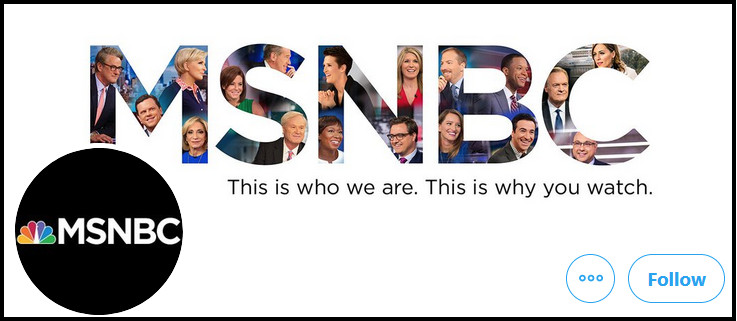Sign up for The Media Today, CJR’s daily newsletter.
With public attention fractured between multiple crises—the pandemic, the election, the changing climate, the lurching Supreme Court, and an economy on the brink of collapse—the delicate machinery of MSNBC’s bland, both-sides façade has become impossible to maintain. It’s like trying to dance a minuet in a hurricane. Nearly every wig in the place has blown clean away.
Long-suffering anchor Chris Hayes, whose father works in public health, made the pandemic a key part of his coverage before the virus had reached the US. On February 25 he reported somberly that around the world, more than three thousand people had died of covid-19, most of them in China: a colossal, incomprehensible figure, back then. The headline beneath him read, “OFFICIALS WARN OF CORONAVIRUS SPREAD IN U.S.”
But Hayes’s condemnation of the White House was still detached and sleekly professional. The administration was “completely unprepared,” he observed. A note of disbelief crept in when he quoted the president’s remarks, that same day: “I think the whole situation will start working out,” Trump had said. Today the number of dead is in excess of 1,117,000 worldwide, with more than 220,000 in the United States.
By July, Hayes had grown far angrier, and had kicked his rhetoric up a few notches, openly denouncing the Republicans’ “insane fight against masks.” The GOP, he said, is “corroded, desiccated, dangerous… becoming a pro-virus party before our eyes.”
In September, it emerged that Trump had known of the dangers of the virus himself, all along, knew that it was airborne, knew that it was deadly, and—in February—had confided that knowledge on tape to Bob Woodward. A subdued Hayes opened his show with a sentence that rushed out of him as if in a single word: “GoodeveningfromNewYorkI’mChrisHayesWELL… he knew. He knew.” At that point, pretty much anything you could say would have been soft-pedaling the calamitous facts. “He knew how bad the virus was… he understood it, amazingly, and then he lied and he covered it up and he made it all worse… it’s arguably the worst coverup in American history.”
More recently, Trump has called Anthony Fauci, the director of the National Institute of Allergy and Infectious Diseases, “an idiot.” He has effectively fired every senior health official originally charged with managing the government’s pandemic response, installing in their place a toadying radiologist whose chief credential is apparently his affiliation with the conservative Hoover Institution. The administration has pretty much ditched every shred of its responsibility to protect the citizens of the United States from harm.
And now, finally, there are no curbs left on Hayes’s anger. “Evil” and “sick” are the words he is using to describe the administration’s pandemic response.
Hayes represents the tip of an iceberg—he states what others still understate. “Well! That happened,” Rachel Maddow said last Wednesday night, right after the Trump town hall broadcast on MSNBC. “Let me remind you that what you just saw was a production of NBC News. We are MSNBC,” she added dryly. “We did not produce that event, we simulcast it here.”
Feeble as they were, Maddow’s veiled objections were another revealing departure from MSNBC norms: the network’s most popular anchor expressing strong public disapproval of her bosses’ decision on presidential coverage, and on the threshold of an election.
In the end, Trump’s characteristically boorish grab for the spotlight backfired spectacularly, and on multiple levels, in large part because of Savannah Guthrie, the town hall’s moderator.
I can’t remember ever seeing a more successful performance from a political moderator; Guthrie was Raddatz-level, or beyond that. The Guthrie Method involves loudly and immediately calling out lies and demanding answers. She held Trump to account in something like the manner of Jonathan Swan of Axios in his celebrated one-on-one interview. But hers was a much harder job, with far higher stakes, a dozen simultaneous claims on her attention, live and in front of some thirteen million people.
She was by turns incredulous, insistent, and resolutely challenging; she also flattered and cajoled Trump now and then. It was like watching a seal with a beach ball. “You’re going to like this question,” she told him; “You’ll like this.” And then she forced the president to admit that he really does owe more than $400 million to unknown parties, and called him out on his retweet of some wild fabrication alleging that Biden ordered the killing of a Navy seal team.
“That was a retweet, that was an opinion of somebody,” he said.
“You’re the president, you’re not like someone’s crazy uncle who can just retweet whatever,” Guthrie shouted.
This simple, no-nonsense approach won Guthrie the praise of media reporters, the admiration of millions of viewers, and the rage of the president, who later referred to her as “totally crazy.” She became part of the living history of this terrible moment, this election, and single-handedly defused the tension around NBC’s decision to air the circus in the first place.
Most of all, Guthrie demonstrated that the most important thing for journalists to remember in corrupt and mendacious times is our own commitment to the truth. With luck she will inspire other cable hosts, and other journalists, as she did me.
Has America ever needed a media defender more than now? Help us by joining CJR today.



